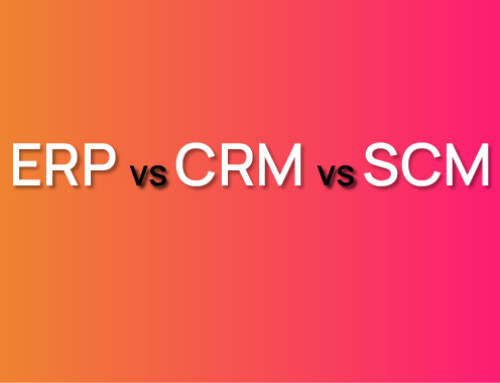Contents
There are different ways to put things and people into different categories — perhaps as many ways as there are people. The same goes for entrepreneurs and their personalities. Of course, by looking at the top entrepreneur types, you can learn about what it takes to be a successful entrepreneur and how you compare against these types. Most of us fall into one of three personality types when it comes to entrepreneurship. Naturally, there are also a lot of real-life entrepreneurs that aren’t a clear-cut example of one type; in fact, most entrepreneurs are a combination of two or more types. So, let’s have a look at the 3 top entrepreneur personality types and what they mean for you before moving on to more examples of entrepreneur types that show a different way to looking at their differences.
The Explorer
If you are an explorer, you like to be busy and keep moving. You are creative, open to new ideas, and enjoy learning new things. You don’t mind taking risks or making mistakes because it gives you the chance to try something different.
You tend to be good at multitasking and may have a lot of energy when it comes to work or school projects. But this can also mean that your work will sometimes get done faster than expected, which can lead others around you feeling overwhelmed as they try to keep up with your pace (and might even end up being left behind).
Some explorers might live in their heads—they think about things too much instead of acting on them right away! If this sounds like someone close who happens not only be entrepreneurial but also has ADHD (attention deficit hyperactivity disorder), then maybe he/she would make an excellent entrepreneur because he/she would have everything needed: creativity; curiosity; high energy levels; willingness for risk-taking; multitasking ability; etcetera…
The Achiever
You’ve probably heard of the Achiever personality type. You may even identify with it. If so, you’re likely someone who is motivated by competition and results. This means that you are good at setting goals for yourself, but you’re also good at breaking down those goals into smaller steps. In other words, you know how to see the big picture while being realistic about what needs to get done day-to-day.
Achievers are ambitious people who want to succeed at everything they do–and believe me when I say that this type of drive can be an asset if harnessed correctly!
The Alchemist
If you want to succeed as an entrepreneur, you need to be able to adapt. You can’t just stick with the same routine forever—you have to be able to change things up and take risks if that’s what it takes for your business (and yourself) to grow.
The Alchemist is a person who loves trying new things and exploring new ideas. They are not afraid of failure because they know that failure only leads them closer towards success. The Alchemist always has their eyes wide open, looking around at the world around them in order to find inspiration for the next big project or idea. These people tend to be creative and have excellent imaginations which help them come up with innovative solutions when problems arise in their businesses or personal lives!
You may be one of these, or a combination of two or more. Knowing how you work best is key to being successful in business.
There are three personality types that tend to be found more often among entrepreneurs than in the general population. Not everyone who identifies with one of these types will necessarily become an entrepreneur, and identifying with one type doesn’t mean you can’t also identify with another.
In fact, many successful entrepreneurs have a combination of two or three personality types—that’s why I like to think of them as categories rather than labels. In this article, we’ll take a look at each type and what makes them tick so that you can find out which one suits your needs best.
Not All Entrepreneurs Are The Same
There are many types of entrepreneurs. Some are motivated by a desire to make money, while others are inspired by the challenge. Some entrepreneurs start their own businesses because they want to be their own boss, while others take on the responsibility because they know they can do it better than anyone else. It’s important to know that there is no right or wrong motivation for starting your own business; all you have to do is be honest with yourself about why you are doing it.
The next step is learning what kind of entrepreneur you are so that you can focus on building skills and strengths in areas where you’ll need them most when running your own company. Here’s my list of five different types.
There are various kinds of entrepreneurs. They are all motivated by the desire to earn money or to make a profit, while others are motivated by the challenges. Entrepreneurs start their own companies as they wish to be their own boss while others are willing to take on the responsibility because they believe they are better than others. It is important to understand that there’s no one right or wrong reason to start your own company. All you need to remember is to remain open to yourself about the reasons you’re doing this.
Next step involves to discover the type of entrepreneur you are, so that you are able to focus on developing your abilities and strengths in the areas that you’ll need them the most while managing your own business. Here we’ll see some of these different entrepreneur categories:
Some People Are Born With The Personality Traits They Need To Become Successful Entrepreneurs. Others Learn Them On The Job Or Develop Them Over Time
There are different types of entrepreneurs, and each one has his or her own approach to running a business. Some people are born with the personality traits they need to become successful entrepreneurs. Others learn them on the job or develop them over time.
It’s important to realize that you can’t always tell what type of entrepreneur you are until you try it out—and even then, it can take some time before you find your stride and develop a work style that suits your individual strengths and weaknesses. You may even change personality types as your life progresses!
There are various kinds of entrepreneurs, and each has their individual way of operating an enterprise. Some individuals are born with the character qualities they need to be successful entrepreneurs. Others learn these traits while working or build them over time.
It is important to recognize that you don’t know the type of entrepreneur you are until you test it . Even after that, it may take a while to get your foot in the door and create the kind of work that best suits your capabilities and weak points. You might even switch the way you think about yourself as life changes!
You May Have Already Noticed That Different Types Of Entrepreneur Personalities Seem To Come In Different Shapes And Sizes
The good news is that you may have already noticed that different types of entrepreneur personalities seem to come in different shapes and sizes. Let’s take a closer look at some of the more common traits among entrepreneurs…
- They are risk takers:
Entrepreneurs tend to be very good at taking risks, but not necessarily because they’re fearless or overly optimistic; it’s more likely due to their desire for independence and control, coupled with an ability to see opportunity where others see only risks. This makes sense when you consider how much potential there is in every business idea—even if it seems like a long shot at first glance! Entrepreneurs are confident in taking risks, however, this isn’t necessarily because they’re brave or overly optimistic. It’s more likely because of their need for autonomy and control, and an ability to spot opportunities when others only see risks. This is logical when you consider the amount of potential there is in each business idea, even if it looks like a big risk initially.
- They’re competitive:
Entrepreneurs don’t compete so much against other companies as they do against themselves—their own goals and objectives. Winning isn’t just about being better than competitors; it’s also about improving upon yourself day-by-day until one day you wake up realizing that your company has grown beyond anything you’ve ever imagined possible before now! Entrepreneurs aren’t competing as with other businesses, but they compete against themselves–their personal goals and targets. It’s not just about being more successful than your competition It’s about advancing on yourself each day until one day you awake and realize that your business has grown beyond what you ever thought possible prior to this point!
How Important Is It To Discover Your Own Personality Type?
If you’re an entrepreneur, then you know exactly how important it is to discover your own personality type.
Knowing your strengths and weaknesses is crucial to creating a successful business. Knowing what type of entrepreneur you are helps you understand how to market yourself, what kind of products and services would be best for your company. If you don’t know which type of entrepreneur you are (or aren’t), then maybe it’s time to do some research! If you’re an owner-manager then you understand how important it is to determine your personal style. Understanding what your strength and weakness are is vital in establishing a business that is successful. Knowing the kind of businessperson you are will help you figure out the best way to present yourself and which products and services are the best for your business. If you’re not sure what kind of entrepreneur is you (or aren’t) perhaps it’s time to conduct some investigation!
Common Ingredients Across All Top Performers
While each entrepreneur has their very own special sauce for success, there are some common ingredients across all top performers.
- Focus on what you are good at. Don’t spend time on things that aren’t your specialty. Concentrate on what you’re proficient at. Avoid focusing on matters that aren’t related to your expertise. You should focus on what you’re proficient at. Do not spend your time doing things that aren’t in your area of expertise.
- Ask for help when you need it! You don’t have to do it all alone. You can ask for help whenever you require assistance! Don’t try to take on the task all by yourself. You can ask for help whenever you require assistance! It’s not necessary to take on the task all by yourself.
- Use your strengths as an advantage – focus on the things that come naturally or most easily to you and delegate other things that may be harder to do but are not necessarily crucial to the success of your business. Utilize your strengths to gain an advantage. Concentrate on what comes easily or naturally to you, and delegate the rest which may be difficult to complete, but aren’t necessarily essential to the success of your business. Utilize your strengths to gain an advantage. Focus on things that come naturally or easily to you and delegate other tasks which may be difficult to accomplish, but are not essential to the success of your business.
- Take risks – make big moves, try new ideas out and go outside of your comfort zone! Entrepreneurship is full of uncertainty so don’t let fear stop you from moving forward toward success. Make big decisions, test different ideas and step out of your familiarity zone! Entrepreneurship is a risky business so don’t let fear keep you from taking the next step toward the success you deserve. Experiment with different ideas and step out of your comfort zone! The business world is full of uncertainty so don’t let fear keep you from taking the next step toward the success you deserve.
Five Other Categories Entrepreneurs Are Lumped Into
It’s important to know the different types of entrepreneur personalities before deciding on a career path. There are a lot of different types, but there are five key categories that many can be lumped into.
Realist: This person knows exactly how things work and will make sure everything is done correctly. They’re not afraid to do things that others are afraid of doing or being responsible for tasks that others aren’t willing to take on themselves. This type is great at sticking with projects through completion and staying focused on the task at hand — even if it’s mundane or boring at times (and sometimes they find it boring).
Egoist: Egoists believe they can do anything they set their mind too! They’re also very confident in their own abilities as well as their opinions about what works best for them personally (even if this isn’t necessarily true). While these people may get results more quickly than some other types, they also tend not to think about how things will affect other people involved in projects — which means sometimes egoists can burn bridges unintentionally by taking risks without considering consequences first!
It is important to understand the various kinds of entrepreneur individuals before choosing the best career option. There are many various types, but there are five major categories that many are placed into.
Office Buddy: Office buddies always have something good happening when working with colleagues, because they are so passionate about building relationships, rather than making problems in teams where everyone is in need of each other.”
Realists: They know precisely how things function and will ensure that everything is done right. They’re not afraid of doing things that other people are scared of, or being responsible for tasks that other people don’t want to tackle themselves. This kind of person is excellent in sticking to projects until their completion and staying focussed on the task that is in front of them, even if it’s dull or even boring (and often, they are bored). Egoists think they are able to accomplish anything with their minds on! They’re also extremely confident about their own capabilities as well as their views regarding what’s best for their personal situation (even when this may not be accurate). Although they may see results faster than others, they do not think about the impact of their actions on others involved in the project This means that sometimes they can cause a lot of damage by taking risks without thinking about the consequences first. Office buddies always have something nice going on when working together with co-workers because they care so much about building relationships rather than creating problems within teams where everyone needs each other equally.” It’s crucial to be aware of the various kinds of entrepreneurial personalities prior to deciding on the right career path. There are many various types, but there are five main categories that are often placed.
Realists: They know the exact way things work and will ensure that everything is done right. They’re not afraid of doing things that others aren’t afraid of, or being responsible for tasks that other people aren’t ready to undertake themselves. This kind of person is excellent in completing projects to their completion and focusing on the work in hand, even when it’s dull or at times boring (and often, they feel bored).
Egoist: Egoists believe that they can accomplish anything they put their minds to! They are also confident about their own capabilities and also their views regarding what’s best for their own personal needs (even if it’s not necessarily accurate). Although they may see results faster than others, they aren’t inclined to consider how their decisions will impact others involved in the project This means that sometimes people who are egocentric can cause damage by taking risks without thinking about the consequences before taking them! Office Buddy: Office friends always have something positive happening when working with colleagues because they’re so concerned about building relationships instead of creating issues within teams in which everyone has a need to work together.
Which Type Of Entrepreneur Is Best For You? Let’s Explore!
Take some time to consider your top strength. Don’t worry, we’ll wait!
Now, ask yourself if this is something that has been helpful in your life, or not. If it’s not a strong suit of yours (like telling jokes), try to find other ways to accomplish the same thing without having that specific skill. Now let’s talk about weaknesses: these are things that can hold you back from success and make you feel like an imposter in business. For example, if you have a hard time networking with people at events because you’re shy, what can you do instead? Maybe ask an acquaintance first before going up to someone alone? Or maybe join a group conversation on social media where everyone already knows each other so there’s less pressure from talking one-on-one with strangers? Whatever it may be for each specific person out there reading this article right now—knowing about our own strengths and weaknesses will help us make better decisions when it comes down to running our businesses successfully or not!
Spend some time thinking about your strengths. Don’t worry, we’ll wait!
Then, consider whether this has helped you in your life or not. If it’s not a strength area for you (like laughing at jokes) you can try finding alternative ways of doing similar tasks without this particular ability.
Let’s look at weaknesses: these are issues which can hinder you from achieving your goals and make you feel as if you’re a fraud in the business. If, for instance, you’re struggling with engaging with people at parties due to your shyness, what could you do? Perhaps ask a friend first before approaching an individual? Perhaps take part in a group chat through social networks where everybody has a relationship with each other, so there’s less pressure to talk on-one with strangers? Whatever is best for the individual here reading this article right now, knowing our strengths and weaknesses can aid us in making better decisions in running the business — successfully or not.
Entrepreneur Type 1 — The Realist
Realists are the most realistic of the entrepreneur types. Realists are very practical and down to earth, which means they have a good understanding of what is possible, as well as what isn’t. For example, if you ask a realist how long it will take you to earn your first million dollars as a business owner, they’ll respond with something like “Oh, maybe in 10 years.” They’re not going to tell you that it can be done in 6 months or less because they know that’s just not realistic!
Realists are good at managing money because they understand how important it is for businesses to plan ahead and save money for future projects and ventures. They also know that sometimes businesses need extra funds coming in from other sources so that they can meet their financial obligations on time each month (like payroll). Realistic entrepreneurs are great managers as well because their ability to evaluate situations in a precise manner helps them determine what improvements are needed in their company or organization before it becomes a problem later down the road. Realistic Entrepreneurs make great managers too since their ability to judge situations accurately allows them to figure out what needs improvement within their business or organization before it becomes an issue later down the line.
Realists are among the most realistic entrepreneurs kind. They are pragmatic and practical and are aware of the possibilities, as well as what’s not. For instance, if you inquire with a realist how long it’ll take to make one million dollars when you become a successful business proprietor they’ll reply with “Oh, maybe in 10 years.” They’re not likely to claim that it will be achieved in six months or less, because they realize that’s not feasible. Realists have a knack for managing money as they realize the importance of businesses to think ahead and make savings to fund future ventures and projects. They also understand that at times companies require additional money coming from different sources to ensure they are able to meet their financial obligations.
Entrepreneur Type 2 — The Egoist
- The Egoist is the entrepreneur who is motivated by their own ego. The Egoist is also an owner-manager who is driven by their personal self-image.
- They are driven by the desire to be recognized as the best, and they typically work hard to become recognized as such. They are also motivated in the pursuit of being acknowledged as the best. they usually strive to be known as such.
- They often succeed in life because they are motivated by their own sense of self-importance and vanity. They can also often be successful in their lives because they are driven by their own feelings of self-worth and self-worth.
Entrepreneur Type 3 — The Office Buddy
The third personality type is the Office Buddy.
As a great team player, this entrepreneur is a natural collaborator. He or she can be counted on to listen, communicate, and work well with others. This entrepreneur may not have all of the skills needed to run their own business full-time, but they are willing do whatever it takes to help other people succeed in theirs. As a team player this type of entrepreneur is a natural collaborator. They can count on being a good listener, communicating and collaborating well with others. An entrepreneur may not possess the necessary skills to manage their own business on a full-time basis however, they will go to any lengths to help others achieve success in their own ventures. The storyteller is a good communicator and an effective leader.” If you’re the kind of person who enjoys telling stories, it could be the case for you. Being an entrepreneur you’re well-known and can inspire people. You realize that communication skills are essential to success in business, which is why you strive to effectively communicate with other people. You also employ storytelling techniques when delivering speeches or presentations In fact many might declare that you’re naturally good at this!
Entrepreneur Type 4 — The Storyteller
The Storyteller
“The storyteller is a good communicator and an effective leader.” If you’re the type of person who likes to tell stories, this may be your personality. As an entrepreneur, you are charismatic and know how to motivate people. You understand that communication skills are key for success in business, so you make it a point to be able to communicate well with others. You also use storytelling techniques when giving presentations or speeches — in fact, some might even say that you’re a natural at it!
Entrepreneur Type 5 – The Peacemaker
The Peacemaker
The peacemaker is the type of entrepreneur that is able to build bridges between people, companies, and organizations. They are excellent mediators and have an uncanny ability to resolve conflict in a calm manner. They understand that everyone needs to be heard in order for a solution to be reached, which makes them great at bringing people together from different perspectives. Peacemaker is the kind of entrepreneur who has the ability to create bridges between individuals as well as companies and organizations. They are great mediators with extraordinary ability to solve conflicts in a peaceful way. They realize that everyone has to be heard to reach a resolution. achieved, which is why they are excellent in bringing people together with different perspectives. This kind of entrepreneur is a great candidate for any job that requires them to assist others in communicating due to their natural tendency toward cooperation and getting to a common ground with others in their environment.
This type of entrepreneur will excel at any job where they can facilitate communication between others because their natural inclination is towards collaboration and finding common ground with those around them.
Embrace Your Natural Strengths
You are the only person who can define yourself. The same goes for your career. You have to be confident enough in your own abilities to ignore expectations others might have of you, or else those expectations will limit what you can accomplish.
The only one who has the power to define yourself. That is the same regarding your professional career. You must be confident enough about your own capabilities to be able to disregard the expectations others might place on you because otherwise, the expectations you set will restrict what you can achieve. It’s not simple however it’s crucial. If you allow the opinions of others to interfere with the things you are good at it’s likely that they’ll not be thrilled with the outcome. If they’re happy with the results (or perhaps less upset than they would have been) the odds are likely that the rest of the world is too!
The only one who has the power to define yourself. This is also true regarding your professional career. You need to be confident enough about your own capabilities to be able to disregard expectations that others may have about you because otherwise, these expectations can hinder your ability to achieve what you want. It’s not simple but it’s vital. If you let the opinions of others hinder your own strengths most likely they’ll be unhappy with the outcome. If they’re happy with the results (or perhaps less upset than they’d been) it’s likely that the rest of the world will be as well! It’s all about finding out what works for you.!
It’s not easy, but it’s important. If you let other people’s opinions get in the way of what you do best, chances are that they won’t be happy with the results anyway—and if they are happy with them (or even just less upset than they would’ve been), then chances are good that everyone else will be too!
Which Entrepreneur Type Are You?
Did you find any entrepreneur that fits you? Maybe a combination of these entrepreneur types? If you’re an entrepreneur and want to know where your personality type falls on this list, take a quick look at our infographic below!
Of course, maybe “entrepreneur” is not exactly the best way to describe you. There are a lot of new types of entrepreneurship constantly evolving and coming out of the woodwork. 2022, for example, saw the astonishing rise in popularity of “infopreneurs,” which is a kind of entrepreneur that sells their knowledge directly, instead of turning it into a product or service first. Can you become an infopreneur? What about technopreneurs? If you’re a tech-savvy Gen Z, you may just have what it takes to turn this into something more than just a trend.
Disclaimer: The content provided on this blog is for informational purposes only and does not constitute legal, financial, or professional advice.






